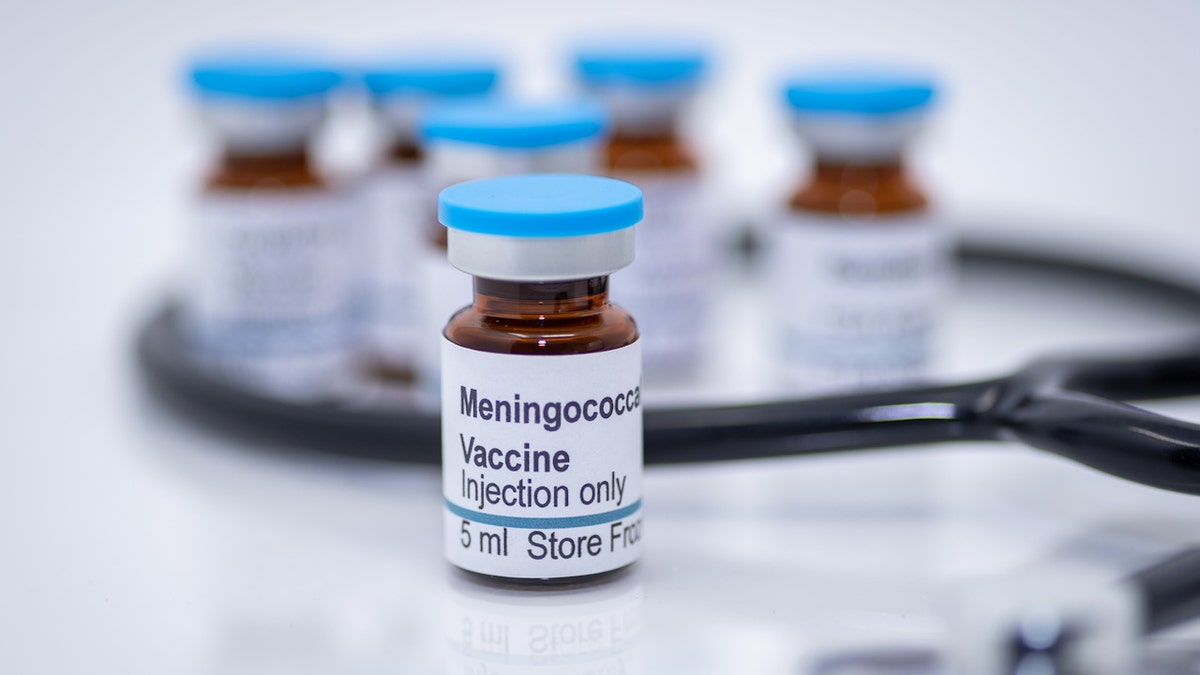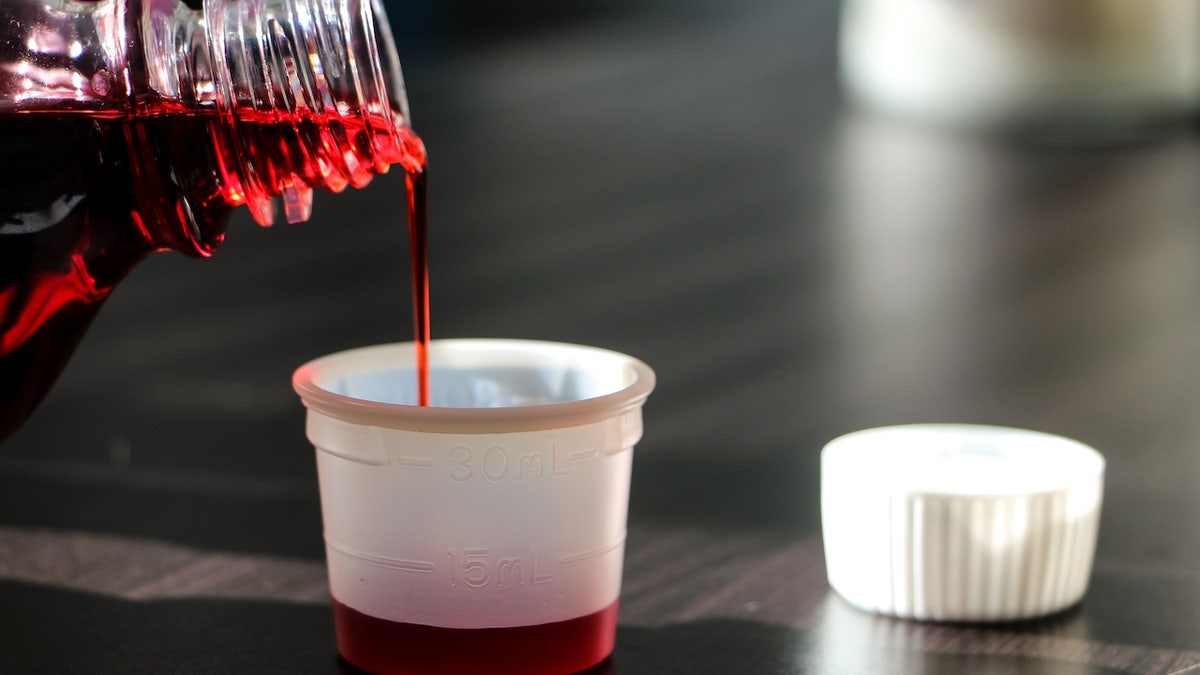Health
Virginia declares statewide outbreak of meningococcal disease: ‘Rare but serious’

The state of Virginia is warning of a statewide outbreak of meningococcal disease, a “rare but serious” bacterial illness that can lead to meningitis.
Since June 2022, there have been 27 cases of the disease reported in eastern, central, and southwest Virginia — three times the expected number of cases in that timeframe, according to an announcement posted by the Virginia Department of Health (VDH) on Wednesday.
A regional outbreak was first announced by the VDH in September 2022 in eastern Virginia, which is where most of the cases have been reported.
E.COLI BACTERIA DETECTED IN GRAND CANYON NATIONAL PARK’S WATER SUPPLY
The last prior update was on March 2022, when the VDH announced that 12 cases of invasive meningococcal disease had been reported since June 2022.
In total, five patients have died from complications associated with meningococcal disease, the agency reported.
The state of Virginia is warning of a statewide outbreak of meningococcal disease, a “rare but serious” bacterial illness that can lead to meningitis. “Meningitis is an inflammation of the protective membranes covering the brain and spinal cord,” according to the Centers for Disease Control and Prevention. (iStock)
In analyzing the DNA of patients, the VDH has determined that the cases are “highly genetically related.”
Most of the affected patients are Black or African-American adults between the ages of 30 and 60.
What to know about meningococcal disease
Meningococcal disease is caused by the bacterium Neisseria meningitidis.
About 10% of people have this bacteria but do not become ill, according to the Centers for Disease Control and Prevention (CDC). For some, the bacteria can cause illness.
FLORIDA MENINGOCOCCAL OUTBREAK AMONG GAY AND BISEXUAL MEN IS ONE OF WORST IN US HISTORY: CDC
Meningococcal disease can be spread through respiratory and throat secretions, often by coughing, kissing or sharing cups or utensils. It is not as contagious as the cold or flu, the CDC noted.
When the disease leads to meningitis, the bacteria causes swelling of the brain and spinal cord.
Typical symptoms include fever, headache and stiff neck. Some may also experience nausea, vomiting, light sensitivity and mental disorientation, the CDC stated.

Meningococcal disease can be spread through respiratory and throat secretions, often by coughing, kissing or sharing cups or utensils. (iStock)
The bacteria can also cause a dangerous bloodstream infection called meningococcal septicemia, which can lead to bleeding into the skin and organs, per the CDC website.
Symptoms of this infection can include fever, chills, fatigue, vomiting, severe muscle aches, diarrhea, rapid breathing and a dark purple rash.
MYSTERIOUS ILLNESS TRIGGERED BY TICK BITE COULD AFFECT THOUSANDS, YET MANY DOCTORS ARE UNAWARE OF IT
Diagnosis is made via a lumbar puncture, also known as a spinal tap, in which samples of cerebrospinal fluid are tested for the bacteria.
Patients require immediate antibiotic treatment; severe cases may also require blood pressure medications, breathing support, wound care for damaged skin or surgical removal of dead tissue, the CDC noted.

The CDC recommends that all preteens and teens between 11 and 12 years old should receive the MenACWY vaccination, followed by a booster dose at 16 years old. (iStock)
Between 10% and 15% of patients will die from the disease.
One in five will suffer long-term disabilities such as brain damage, hearing loss, limb amputations or nervous system problems.
Preventing the spread
The VDH recommends following these protocols to prevent the spread of meningococcal disease:
–Avoid sharing personal items, such as lipsticks, toothbrushes and vapes
–Practice good hand hygiene
–Maintain distance from people who are sick
–Seek immediate medical attention upon noticing symptoms
CLICK HERE TO SIGN UP FOR OUR HEALTH NEWSLETTER
There are vaccines available for meningococcal disease.
The CDC recommends that all preteens and teens between 11 and 12 years old should receive the MenACWY vaccination, followed by a booster dose at 16 years old.
Children and adults in high-risk groups should receive the MenACWY vaccine, the CDC states on its website.
Teens and young adults (16 through 23 years old) may also get a MenB vaccine.

Health
Treating Other Diseases With Ozempic? Experts Weigh In | Woman's World

Sign Up
Create a free account to access exclusive content, play games, solve puzzles, test your pop-culture knowledge and receive special offers.
Already have an account? Login
Use left and right arrow keys to navigate between menu items.
Use escape to exit the menu.
Health
FDA bans red food dye due to potential cancer risk

FDA looks to ban red food dye
Celebrity fitness trainer Jillian Michaels joins ‘Hannity’ to discuss the possibility of the FDA banning red food dye.
The U.S. Food and Drug Administration (FDA) has officially banned red dye — called Red 3, or Erythrosine — from foods, dietary supplements and ingested medicines, as reported by the Associated Press on Wednesday.
Food manufacturers must remove the dye from their products by January 2027, while drug manufacturers will have until January 2028 to do so, AP stated.
Any foods imported into the U.S. from other countries will also be subject to the new regulation.
RED FOOD DYE COULD SOON BE BANNED AS FDA REVIEWS PETITION
“The FDA is taking action that will remove the authorization for the use of FD&C Red No. 3 in food and ingested drugs,” said Jim Jones, the FDA’s deputy commissioner for human foods, in a statement.
The U.S. Food and Drug Administration has officially banned red dye — called Red 3, or Erythrosine — from foods, dietary supplements and ingested medicines (iStock)
“Evidence shows cancer in laboratory male rats exposed to high levels of FD&C Red No.3,” he continued. “Importantly, the way that FD&C Red No. 3 causes cancer in male rats does not occur in humans.”
The synthetic dye, which is made from petroleum, is used as a color additive in food and ingested drugs to give them a “bright cherry-red color,” according to an online statement from the FDA.

Food manufacturers must remove the dye from their products by January 2027, while drug manufacturers will have until January 2028 to do so. (iStock)
The petition to ban the dye cited the Delaney Clause, which states that the agency cannot classify a color additive as safe if it has been found to induce cancer in humans or animals.
The dye was removed from cosmetics nearly 35 years ago due to potential cancer risk.
CLICK HERE TO SIGN UP FOR OUR HEALTH NEWSLETTER
“This is a welcome, but long overdue, action from the FDA: removing the unsustainable double standard in which Red 3 was banned from lipstick but permitted in candy,” said Dr. Peter Lurie, director of the group Center for Science in the Public Interest, which led the petition effort, as reported by AP.

Nearly 3,000 foods are shown to contain Red No. 3, according to Food Scores, a database of foods compiled by the Environmental Working Group. (iStock)
Dr. Marc Siegel, clinical professor of medicine at NYU Langone Health and Fox News senior medical analyst, applauded the FDA’s ban.
“It was a long time coming,” he told Fox News Digital. “It’s been more than 30 years since it was banned from cosmetics in the U.S. due to evidence that it is carcinogenic in high doses in lab rats. There needs to be a consistency between what we put on our skin and what we put into our mouths.”
“There needs to be a consistency between what we put on our skin and what we put into our mouths.”
Siegel said he believes the FDA’s decision could be tied to the incoming new head of the Department of Health and Human Services, Robert F. Kennedy Jr.
“They knew it would have happened anyway under RFK Jr.,” he said. “It is already banned or severely restricted in Australia, Japan and the European Union.”

The food additive also “drew kids in” to a diet of empty calories and ultraprocessed foods, one doctor stated. (iStock)
The food additive also “drew kids in” to a diet of empty calories and ultraprocessed foods, Siegel added.
“It has also been linked to behavioral issues in children, including ADHD.”
Nearly 3,000 foods are shown to contain Red No. 3, according to Food Scores, a database of foods compiled by the Environmental Working Group.
For more Health articles, visit www.foxnews.com/health
The National Confectioners Association provided the below statement to Fox News Digital.
“Food safety is the number one priority for U.S. confectionery companies, and we will continue to follow and comply with FDA’s guidance and safety standards.”
The petition to remove Red No. 3 from foods, supplements and medications was presented in 2022 by the Center for Science in the Public Interest and 23 other organizations and scientists.
Health
How Yvette Nicole Brown Lost Weight and Got Her Diabetes Under Control

Sign Up
Create a free account to access exclusive content, play games, solve puzzles, test your pop-culture knowledge and receive special offers.
Already have an account? Login
Use left and right arrow keys to navigate between menu items.
Use escape to exit the menu.
-
/cdn.vox-cdn.com/uploads/chorus_asset/file/25822586/STK169_ZUCKERBERG_MAGA_STKS491_CVIRGINIA_A.jpg)
/cdn.vox-cdn.com/uploads/chorus_asset/file/25822586/STK169_ZUCKERBERG_MAGA_STKS491_CVIRGINIA_A.jpg) Technology1 week ago
Technology1 week agoMeta is highlighting a splintering global approach to online speech
-

 Science6 days ago
Science6 days agoMetro will offer free rides in L.A. through Sunday due to fires
-
/cdn.vox-cdn.com/uploads/chorus_asset/file/23935558/acastro_STK103__01.jpg)
/cdn.vox-cdn.com/uploads/chorus_asset/file/23935558/acastro_STK103__01.jpg) Technology6 days ago
Technology6 days agoAmazon Prime will shut down its clothing try-on program
-

 News1 week ago
News1 week agoMapping the Damage From the Palisades Fire
-

 News1 week ago
News1 week agoMourners Defy Subfreezing Temperatures to Honor Jimmy Carter at the Capitol
-
/cdn.vox-cdn.com/uploads/chorus_asset/file/25826211/lorealcellbioprint.jpg)
/cdn.vox-cdn.com/uploads/chorus_asset/file/25826211/lorealcellbioprint.jpg) Technology6 days ago
Technology6 days agoL’Oréal’s new skincare gadget told me I should try retinol
-
/cdn.vox-cdn.com/uploads/chorus_asset/file/25832751/2192581677.jpg)
/cdn.vox-cdn.com/uploads/chorus_asset/file/25832751/2192581677.jpg) Technology2 days ago
Technology2 days agoSuper Bowl LIX will stream for free on Tubi
-

 Business4 days ago
Business4 days agoWhy TikTok Users Are Downloading ‘Red Note,’ the Chinese App














